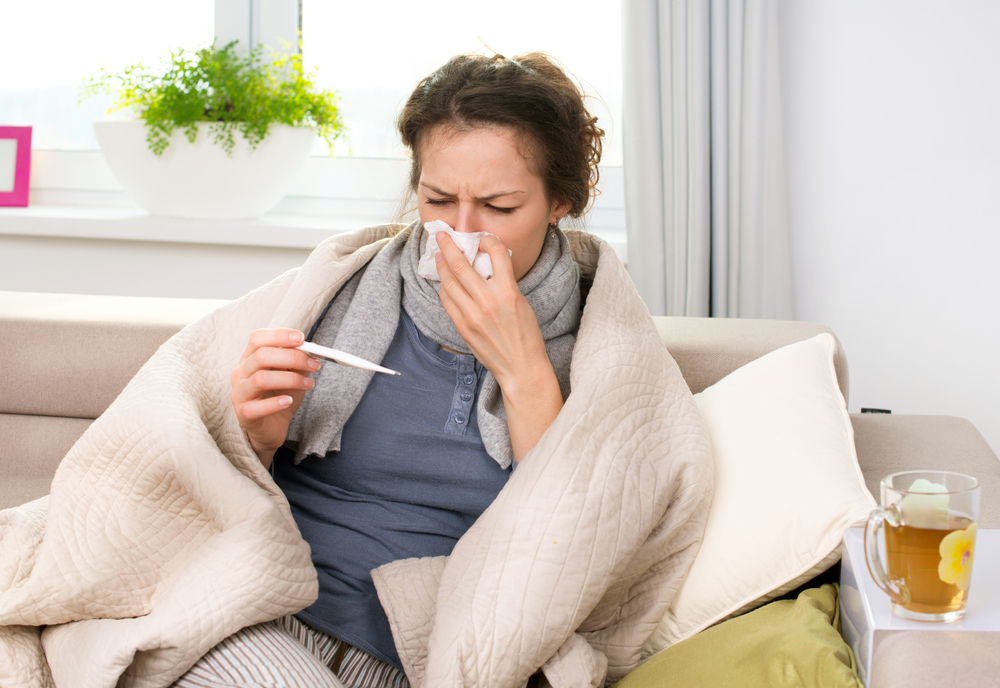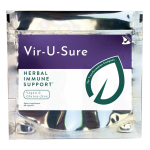A person’s normal body temperature can range anywhere between 97 degrees to 99.5 degrees fahrenheit. A fever is a natural immune system response. A fever is the increase in internal temperature to fight off infections. This can be caused by bacteria, viral, poisoning, heatstroke, environmental toxins, or a malfunctioning hypothalamus.
Most common a fever is brought on from bacteria or viral illnesses. The worse the infection the higher the fever usually is. A fever is a sign that your body is responding appropriately to an illness. A fever can also help your body boost production of white blood cells, which is also beneficial in fighting off an infection.
A fever is considered anything above 100.4 degrees fahrenheit. When you develop a fever from an infection your temperature usually will not go above 103-104 degrees fahrenheit. Unless there are other factors present, like a warm environment. Fevers that are less than 103 degrees fahrenheit will not cause brain damage or other problems long term. Even temperatures high enough to cause a febrile seizure, do not have a lasting effect and are not signs of epilepsy.
Fever Reduction Medications
There are lots of medications that can reduce fevers. Many of them are over the counter medications that you can get without needing a prescription. These are medications like Tylenol, Advil, Ibuprofen, Motrin, Aleve, or Aspirin. These medications interrupt the chemical signals that connect inflammation in the body with the internal thermostat. It can be a first response the moment a fever appears to take a fever reducer to try to stop the fever. Taking these medications and treating the fever does not cause the illness to go away. In some cases it can even cause the illness to last longer than it would have if you let the fever run its course. Taking medication is adding a foreign substance into your system. This can cause the body to exert energy in filtering and metabolizing the medication. This energy may be better spent fighting off the infection.
Fevers Help Your Body Heal
There have been some things that have been studied and proven in the battle between treating or letting a fever run its course. One is that germs slow down growth when the body temperature is elevated. The immune system in the body is more efficient when the body temperature is elevated. A fever can get rid of weakened cells in the body, which can help you feel less sick more quickly. A fever’s progression can help you track your sickness. Such as seeing if you are getting worse or getting better. Antibiotics work better at warmer temperatures.
When should a fever cause you to seek medical help?
There are some fevers that you should not ignore. In some cases fevers need treatment. All of these should be consulted with a doctor if you experience them. An infant 3 months or under with a fever of 100.3 degrees fahrenheit. An infant 3-12 months that has a fever of 102.2 degrees fahrenheit. A fever in a child who is unvaccinated. Anyone with a fever over 105 degrees fahrenheit. Anyone who has a fever that lasts for more than 3 days. Anyone who has a fever and other symptoms. Anyone who has a fever and just recently had surgery. Someone who has a fever and is immunosuppressed. Someone who has a fever and has a PICC line, port, or central venous catheter. All of these situations may call for medical intervention.
Fever Comfort Tips
A fever can cause symptoms such as sweating, chills and shivering, headache, muscle aches, loss of appetite, irritability, dehydration, and weakness. None of these are fun to go through, or to watch a child or loved one experience.
Before you take the fever reducers there are some other options of making yourself or the child comfortable while they ride out their fever:
- One is to dress in light layered clothing that is breathable and allows you to sweat.
- Keep the environment cool. A hot environment can exacerbate a fever.
- Drink lots of fluids. Dehydration can be caused from having a fever. Drinking water, electrolyte drinks, or dilated juice can help you stay hydrated and help your body flush out the illness.
- Elderberry popsicles for children can be a great option. Elderberry helps boost the immune function. Having it in popsicle form can help them feel more comfortable, be cool to swallow, and make them more eager to eat it. Elderberry root – Gives a gentle boost to your immune system and helps reduce allergic reactions. Elderberry also helps your body stop the flu and other viruses by inhibiting viral replication. It also tastes lovely in any tea.
- Try to not overexert yourself. Try to keep your child from overexerting themself too. Getting out of bed and playing quietly is ok if your child feels up for it. Running around or playing things that call for big motor movement may not be.
- There are also options of a lukewarm bath, cool shower, or using a cool compress on their neck or head. These all may help you or your child feel more comfortable, but cooling the outside can sometimes raise the internal temperature so make sure if you use these you monitor the fever.
Takeaway
There still is not a lot of research on whether or not you should let the fever run its course or if intervening with medications is the best course. Fevers are the body’s natural immune system response to fight infections. Stopping that may make the sickness last longer than it would have. Fevers can be very uncomfortable so finding some ways to help ease yourself or your child through a fever can be beneficial.
Kids Shield Tincture is a synergistic herbal blend with elderberry, astragalus and licorice that can be added to water or juice and will help boost the immune system.
Letting a fever run its course may speed healing! #HealthSurgeon
READ MORE: Persistent Fever: Health Concern
Sources:
https://theconversation.com/why-taking-fever-reducing-meds-and-drinking-fluids-may-not-be-the-best-way-to-treat-flu-and-fever-173134#:~:text=Many%20studies%20demonstrate%20what%20can,immune%20response%20to%20the%20infection.
https://www.stanfordchildrens.org/en/topic/default?id=not-all-fevers-need-treatment-88-p11048
https://www.goodrx.com/conditions/fever/should-you-treat-a-fever
https://wellnessmama.com/health/fever-remedies/









